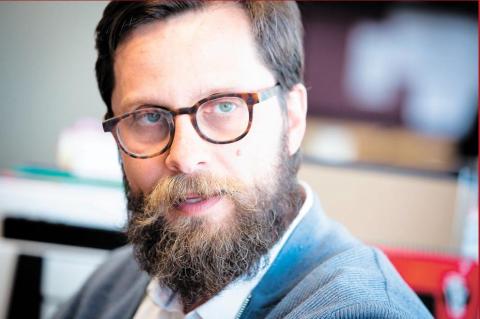European Economic
and Social Committee
EU countries must not force Syrian refugees to return amid ongoing instability
UNHCR, the UN Refugee Agency, is ready to support Syrians who feel it is safe to return home. But for all others, it advises against forced returns to a country marked by political uncertainty and grappling with one of the world’s worst humanitarian crises, where as much as 90% of the population lives below the poverty line, writes UNHCR’s Jean-Nicolas Beuze
By Jean-Nicolas Beuze
As the political landscape in Syria rapidly evolves following the downfall of President Bashar al-Assad, the debate surrounding the world’s largest refugee population has taken centre stage across Europe.
An increasing number of EU countries are pausing decisions on asylum applications for Syrians, with some announcing initiatives that include chartered flights and financial incentives or ‘return bonuses’ to encourage refugees to go back home. Others are even reportedly planning to deport Syrians currently on their territory, regardless of their asylum status.
For EU states to make informed asylum decisions, they need to assess whether Syria is safe for Syrians currently residing in Europe to return to. Given the rapidly evolving situation on the ground, it is impossible to make definitive judgements about safety at this time. The security landscape in Syria remains uncertain, as the country teeters between the possibility of peace and reconciliation and the risk of further violence.
Millions of Syrian refugees living outside of the country are grappling with what the evolving situation in their homeland means for their own future. They are asking themselves: Will Syria be safe for me? Will my rights be respected? For some, the prospect of returning may seem more feasible, but for others deep concerns remain.
What does the future hold for those belonging to ethnic or religious minorities, holding differing political views or identifying as part of the LGBTQ + community in today’s Syria? The answer is still unclear.
But for those who feel it is safe to return, we must respect their judgement – and potentially support them in returning and reintegrating into their communities of origin. However, for all others, UNHCR advises against forced returns due to the ongoing instability and political uncertainty in the country.
Forced repatriation from the European Union would violate the rights of Syrians as refugees, putting them at risk of serious and irreparable harm upon return.
The ongoing armed violence in various parts of Syria, combined with uncertainty about how the new authorities will address the needs of the population, especially vulnerable groups, makes it premature for many to consider returning. It is important to respect their judgement in this matter. Therefore, the EU Member States, along with countries neighbouring Syria that have generously hosted most Syrian refugees for more than a decade, must continue to uphold their commitment to providing protection for Syrians on their territory.
Of the 1.1 million people internally displaced by the escalation of hostilities at the end of November, approximately 627 000 people remain newly displaced, 75 per cent of whom are women and children.
Premature returns pose significant risks, not least fueling a cycle of displacement – both within Syria and across borders – ultimately deepening the crisis.
Aside from mass displacement, Syria is dealing with one of the world’s worst humanitarian crises. Large portions of Syria’s infrastructure have been destroyed in the conflict, including hospitals, schools and housing. Most refugees have no homes to return to. Many regions are still experiencing shortages of food, clean water and medical care. The lack of basic services, economic opportunities and safety makes it challenging for returnees to rebuild their lives in a sustainable and dignified manner. A striking 90 per cent of the population in Syria lives below the poverty line.
In the past few weeks, the voluntary returns of Syrians from Lebanon, Türkiye and Jordan have noticeably increased, with preliminary estimates showing 125 000 or roughly 7000 per day. While these returns are driven by individual choices, UNHCR is committed to supporting those who decide to return now.
As many Syrians in Europe and neighbouring countries consider whether it is safe to return and question what they will find in terms of basic services and opportunities to rebuild their lives, they deeply long to reunite with loved ones. For this reason, many wish to return home for short visits to assess the situation on the ground. They need to be able to do so without the fear of losing their refugee status in Europe. These ‘go and see’ visits are essential for people to make informed decisions that will lead to better outcomes, including safe and durable returns.
Patience and caution are essential as Syrians await the right conditions for a safe return and successful reintegration into their communities. As many Syrians begin to consider returning home, UNHCR is ready to support them. After years of displacement, this could be a long-awaited opportunity for many to end their refugee journey and embrace a lasting solution by returning to Syria. Just as the European Union and UNHCR have stood by them throughout their exile, we will continue to stand with them as they return and rebuild a new Syria.
Jean-Nicolas Beuze is the UNHCR country representative to the EU, Belgium, Ireland, Luxembourg, The Netherlands and Portugal, having previously served as country representative in Iraq, Yemen and Canada. He has over 27 years of experience working for the UN in the field and at the headquarters in the areas of human rights, peacekeeping and child protection.
